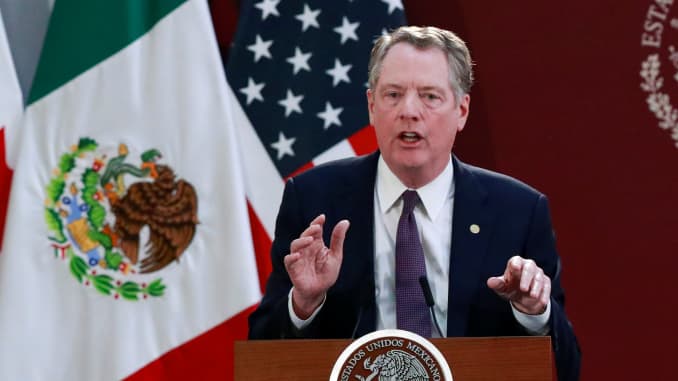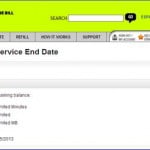
The U.S. is weighing tariffs of up to 100% on European products the Trump administration previously absolved from such duties, targeting some of the euro zone’s most emblematic products, including Irish and Scotch whiskies and Cognac.
The Office of the United States Trade Representative on Thursday published a list of additional European goods it is now considering for the tariffs amid the fallout of its high-profile dispute with Airbus.
The USTR earlier this year published multiple lists of European goods worth more than $10 billion that it had hoped to target in response to its beef with Airbus. In October, Washington moved ahead and imposed tariffs of 10% on large civil aircraft and 25% on agricultural goods from Europe.
Now the USTR is appearing to solicit advice on whether to hike rates on those goods up to 100% as well as add to its earlier list with some goods that the White House had excluded from its final October list. The new items, if added, could also be taxed at a rate up to 100%.
Among the myriad new products under consideration include European spirits such as whiskey and Cognac. Other items being considered for tariffs up to 100% range from Spanish olive oil and French cheese to German knives and Portuguese fish fillets
The potential list “once again includes blended whiskies and Cognac … The fact that they had been excluded from the ‘final’ October list was a dodged bullet for Spirits companies back then. But now the threat is back,” wrote Bernstein analyst Trevor Stirling in a note to the brokerage’s clients.
“This is a full reshuffle — we are potentially seeing a rolling tariff, which we highlighted as a possibility two months ago,” Stirling added.
The U.S. has long argued that subsidies to Airbus hurt American aircraft giant Boeing and that the EU’s efforts to comply with prior WTO rulings against the subsidies aren’t enough to even the playing field.
But the complaint also represents a chapter in the White House’s broader campaign to reduce trade deficits. Starting with broad tariffs on imported steel and aluminum, the administration has sought to broker new, more advantageous trade pacts through the use of taxes and quotas.
Asked for comment on the new items, the USTR’s office referred CNBC to a prior statement.
“As a result of the EU’s failure to address these subsidies, on October 18, the United States imposed tariffs of 10 percent on large civil aircraft and 25 percent on agricultural and other products” from the EU, the USTR wrote on Dec. 2.
Due to the EU’s failure to curb the subsidies, “the United States is initiating a process to assess increasing the tariff rates and subjecting additional EU products to the tariffs,” it added at the time.
Though Trump has seen some success with his protectionist tactics — notably in a new NAFTA agreement with Canada and Mexico — they’ve also angered economic partners around the globe.
In a separate matter, the U.S. government said last week that it might slap tariffs of up to 100% on $2.4 billion in imports from France after concluding that France’s new digital services tax would harm U.S. tech companies.
The administration’s ongoing negotiations with China are most emblematic of the president’s bargaining style with both Beijing and Washington, angling for self-serving deals that don’t appear too lopsided in either direction.
The two sides reached a breakthrough in “phase one” discussions on Friday with the U.S. agreeing to cancel Sunday’s new round of tariffs and rolling back some other duties in exchange for Beijing’s purchases of American agricultural goods.
The deadline for public comments on the USTR’s new tariffs is Jan. 13.
[“source=cnbc”]











